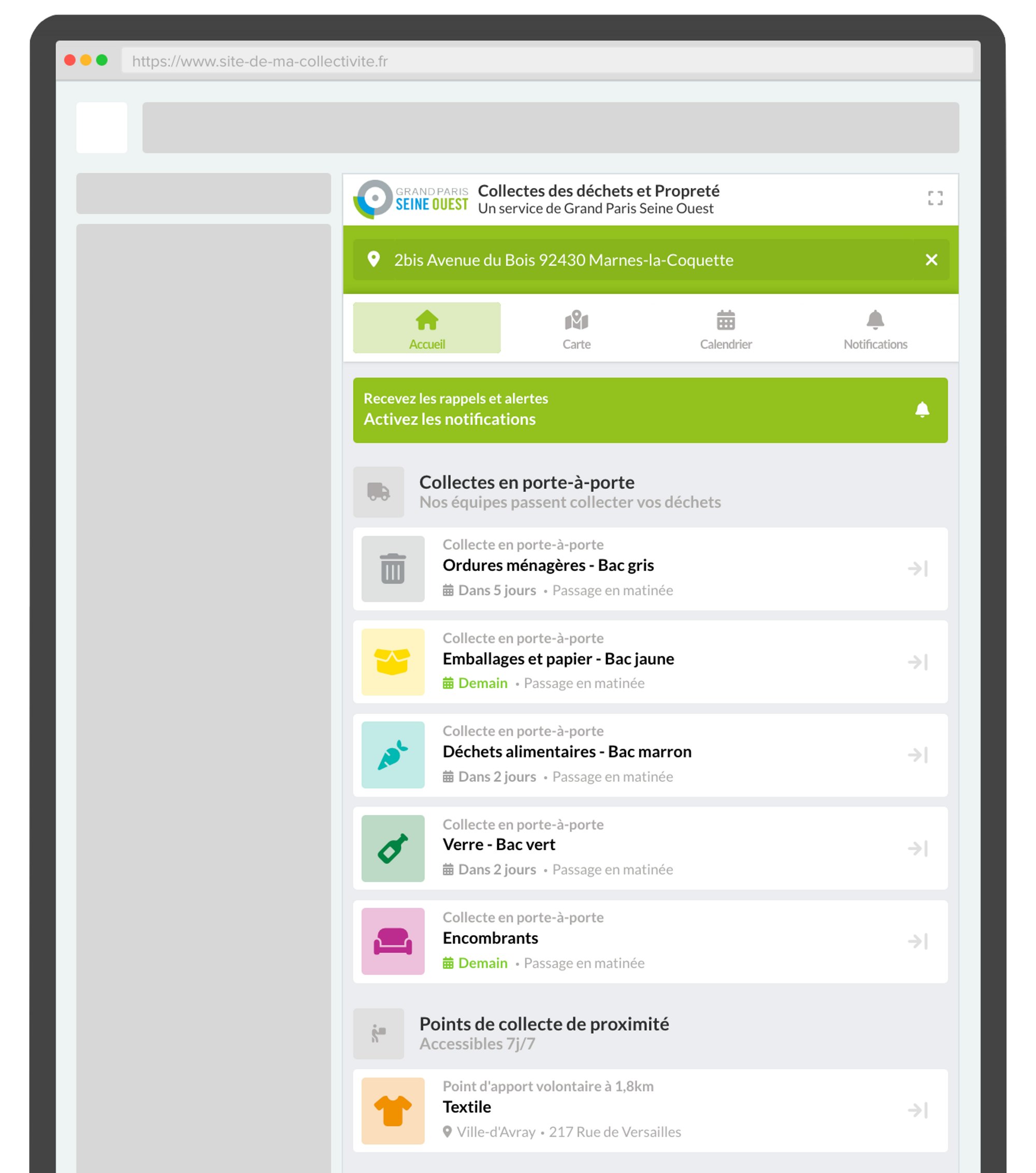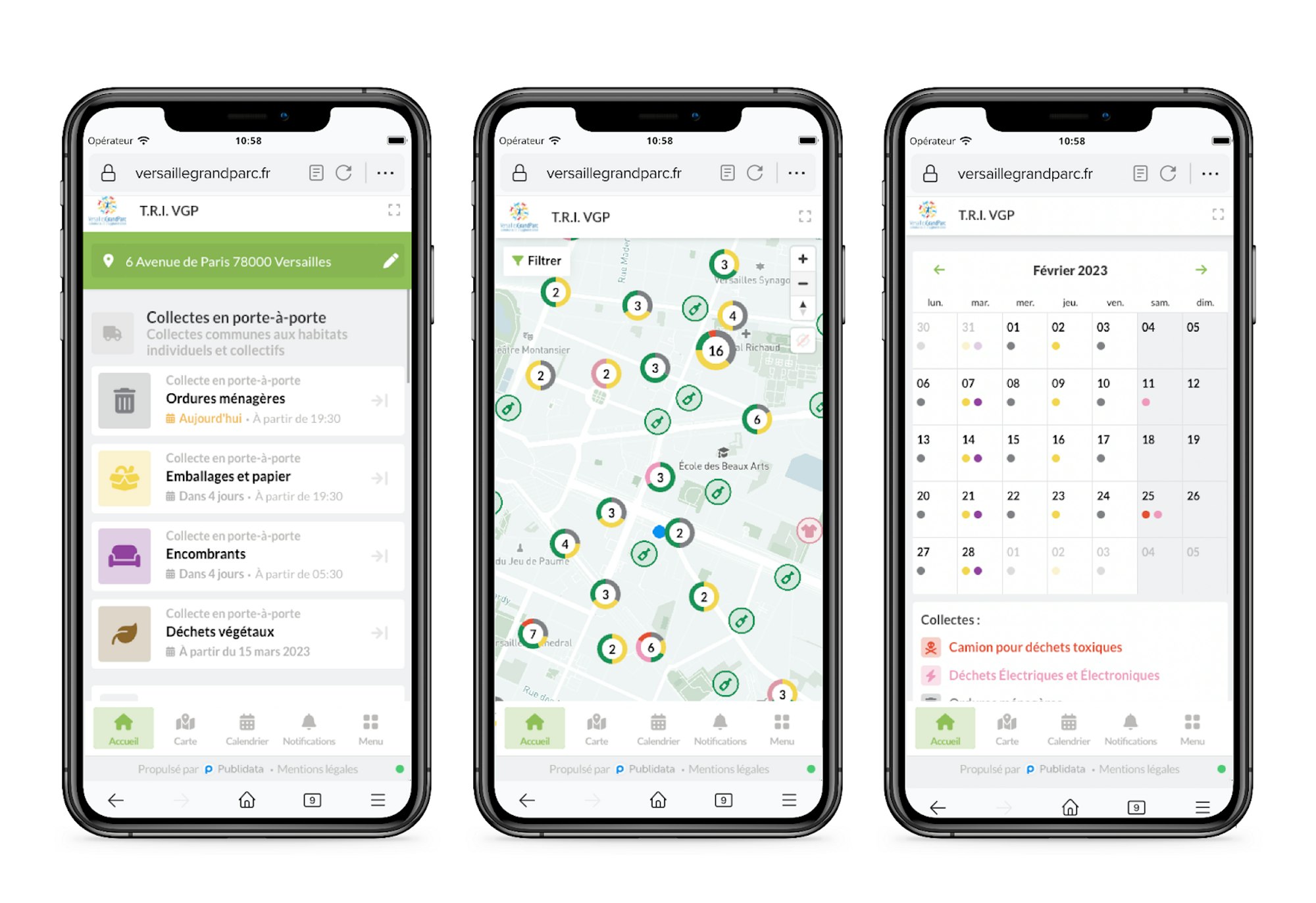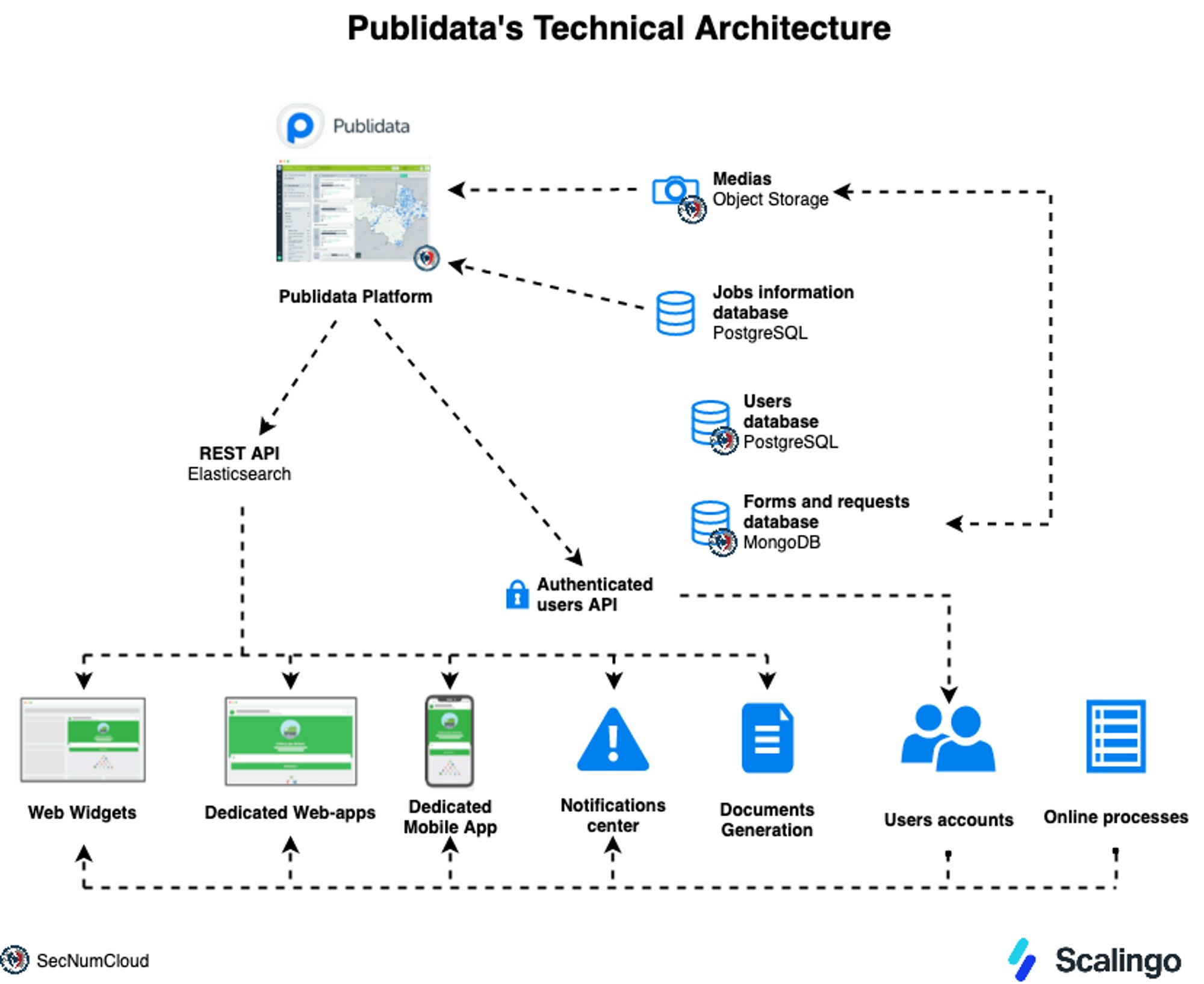Sovereign Hosting:
How Publidata meets the strict data protection needs demanded by their clients

Structuring a large amount of data to transform it into relevant information can become a very complex task if it is not done correctly.
This problem is even more of a priority to local authorities who have a crucial role in the management and distribution of information on the territory. Indeed, local authorities have many responsibilities such as housing, social action, urban planning, environment, culture, sport, tourism, etc.
The transmission of information on these services is sometimes a headache: user profiles, schedules, sectors, exceptions, etc. Poorly controlled communication of information affects the relationship between residents and their public institution.
Julien Nacci and Guillaume Juvenet, founders of Publidata, well aware of these issues, decided in 2017 to create a platform for the management and delivery of information for local authorities.
We recently had the opportunity to interview Guillaume Juvenet and Aurélie Mandon, respectively CTO and Account & Marketing Manager at Publidata.
It was an opportunity to know more about their activity, their internal organization, and the technical functioning of their solution. We will share with you everything we learned in this article!
Publidata facilitates the daily life of millions of citizens
Publidata covers today more than 750 local authorities and provides services to more than 5 million users in France! Among their beneficiaries are: Versailles Grand Parc, Paris Est Marne & Bois, Grand Paris Seine Ouest, Ardenne Métropole and Orléans Métropole.

Publidata's solutions are designed to provide better information on public services, in real time, and according to the profile, address or location of the users who consult them.
Via their SaaS platform, local authorities can manage and structure information in a collaborative and centralized way. This can concern everything related to the community's ecosystem, including events, services and points of interest in the territory. But it is on environmental issues that Publidata has met the most needs.
For example, one of the most sought-after pieces of information by residents is everything related to waste management. It is also the most complex type of information to transmit.
Publidata has a Publidata waste information suite that facilitates the management and distribution of data related to the waste collection services of local authorities. The information is distributed in the form of a widget in a progressive web app that can be integrated everywhere (local authority websites, city app, dedicated website) or via a dedicated mobile app.
Potentially, all the sectors of action of the communities can be covered: agenda, canteen menu, directory of open shops and other local information.

Thanks to this solution, local authorities can manage the delivery of information from all their waste services: waste collection center schedules, next collection, nearest voluntary collection point, sorting instructions, etc.
Residents receive only the information that concerns them, and they can also make an appointment online to have a bulky item collected, report an anomaly at a collection point, and receive collection reminders via notifications.
The technical architecture of Publidata
Today, the Publidata team is composed of 8 people, including 6 in the tech team. We had the chance to learn more about the behind-the-scenes of the solution, and we're going to tell you what we learned about the internal workings of the team!

During our interview, Guillaume revealed the technical architecture of Publidata, and we discovered the complexities of their app and how it works from a technical point of view.
First, there is the Publidata platform, which is coded in Ruby on Rails and hosted on the SecNumCloud region of Scalingo.
This back-end application is the heart of the Publidata solution, the app interacts with various PostgreSQL and MongoDB databases on Scalingo. These databases are used for business information data, user data and forms and requests.
In parallel, Publidata has a REST (Representational State Transfer Application Program Interface) API in Elasticsearch that will allow interaction between the different applications of the web widgets, web-app, mobile application, notification centers and document generation.
How Publidata uses the Scalingo PaaS
Now that you know a bit more about how Publidata works on a technical level, we'll detail a bit more the reasons behind these choices, and how the Publidata team interacts with Scalingo on a daily basis.
Scaling made easy
The nature of Publidata's business means that the level of resources consumed varies from one period of the year to another, depending on the number of visitors to the websites of local authorities.
This seasonality is an important issue for Publidata, and they must take it into account to maintain an optimal level of service for their users.
Guillaume explained that the autoscaling feature on Scalingo was particularly adapted to these situations.


Indeed, during peak periods, the autoscaling feature detects when the resources required by the application are no longer sufficient, and allocates more resources to the application to support this traffic increase. Conversely, when traffic decreases, the allocated resources are reduced and adapted to the needs of the application in real time, without human intervention!
Thus, thanks to this functionality, the Publidata team remains calm in the face of unexpected peaks in traffic, while being sure that their applications will not consume more resources than necessary.
A sovereign PaaS with datacenters in France
During our discussion with Guillaume and Aurélie, we understood that the subject of sovereign hosting was not only a priority for them, but also for their customers.


For the Publidata team, the choice of Scalingo as a hosting provider was particularly well suited to their needs and those of their customers, especially since the Scalingo Paas is based on the 3DS Outscale infrastructure whose datacenters are located in France.
In addition to the need for sovereignty, the Platform as a Service aspect is an important element for Publidata.


Guillaume explained that after comparing with other PaaS players, Scalingo best fit their need for sovereignty.
SecNumCloud certified
Another need that was mentioned by Guillaume and Aurélie during our interview is the SecNumCloud certification.
This certification established by the ANSSI (French National Agency for Information Systems Security) is the highest level that a Cloud hosting company can obtain in France. To learn more about SecNumCloud, you can read our article on Scalingo certifications.
Scalingo recently became the first French PaaS to be ISO 27001 and HDS (Health Data Hosting) certified, and we are working on obtaining the SecNumCloud qualification.
In the meantime, we have an osc-secnum-fr1 region that is based on the SecNumCloud certified datacenters of our provider 3DS Outscale.
This region offers Publidata the level of certifications we are looking for, and this, with a PaaS hosting provider.
Dedicated and efficient support
One of the last points mentioned during the interview with Publidata is the support and its responsiveness.


The Publidata team explains to us that they are satisfied with Scalingo's support and especially with its performance.
For them, having access to a quality support that helps them with any problem is a great strength for Scalingo.
To sum up
Publidata works to create the ideal solution for communities and allows them to manage and disseminate information simply and completely.
More than 750 communities trust them, and more than 5 million users benefit from a service optimized to provide efficient access to the information they seek.
Publidata trusts Scalingo to host their applications and data, and operates in a sovereign cloud environment.
Scalingo is the right partner for Publidata and notably for :
- An automatic and optimized scaling
- A PaaS and French datacenters
- A SecNumCloud certified infrastructure
- An efficient support
A great collaboration between Publidata and Scalingo that lasts since 2017!
Are you interested in Scalingo? Discover our team! Schedule a demo and get a free 30-day trial!





